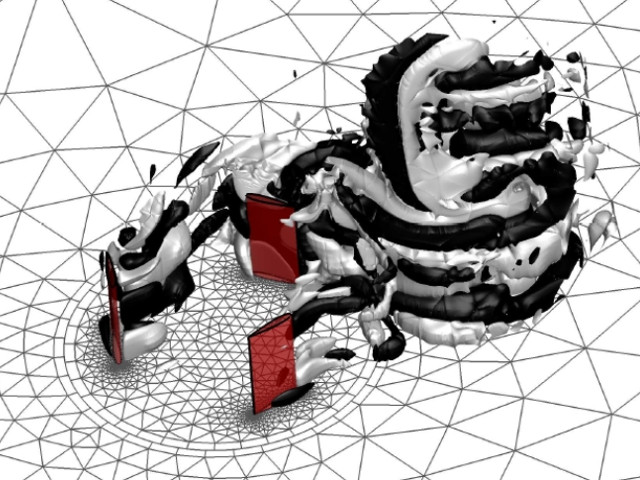Authors
P A M Casares and M A Martin-Delgado
Journal Paper
https://doi.org/10.1088/1751-8121/abb439
Publisher URL
Publication date
October 2020
We introduce a new quantum optimization algorithm for dense linear programming problems, which can be seen as the quantization of the interior point predictor-corrector algorithm [1] using a quantum linear system algorithm [2]. The (worst case) work complexity of our method is, up to polylogarithmic factors, O(L√n(n + m)||M||Fκ∊ ¯ −2) for n the number of variables in the cost function, m the number of constraints, ∊−1 the target precision, L the bit length of the input data, ||M||F an upper bound to the Frobenius norm of the linear systems of equations that appear, ||M||F, and κ¯ an upper bound to the condition number κ of those systems of equations. This represents a quantum speed-up in the number n of variables in the cost function with respect to the comparable classical interior point algorithms when the initial matrix of the problem A is dense: if we substitute the quantum part of the algorithm by classical algorithms such as conjugate gradient descent, that would mean the whole algorithm has complexity O(L√n(n + m)2κ¯ log(∊−1)), or with exact methods, at least O(L√n(n + m)2.373). Also, in contrast with any quantum linear system algorithm, the algorithm described in this article outputs a classical description of the solution vector, and the value of the optimal solution.



